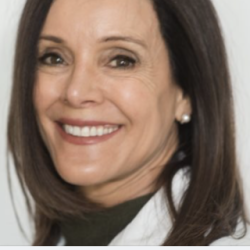In the heart of the bustling city, the waiting room of an overbooked clinic felt like the eye of a storm, each tick of the clock cutting into my dwindling lunch break. Among the sea of patients, one particular face caught my attention: a middle-aged man I will name Joseph. The fatigue and disillusionment in his eyes narrated a story of countless futile appointments and a long trail of misdiagnoses.
As Joseph settled into the chair across from my desk, he hesitated before unveiling his tapestry of ailments — "anxiety," "panic attacks," "atypical chest pain," "palpitations," and "shortness of breath." Each phrase felt like a heavy brick in an ever-mounting wall. A cursory glance at his medical record revealed prescriptions for an array of antidepressants and antipsychotics, medications that should have provided relief but, in his case, only deepened his angst.
Joseph's voice wavered as he confessed, "I feel like I'm losing my mind, Doc." The tragedies that had befallen him in the past year painted a somber backdrop to his ailments. From job loss and the painful sting of grief to a desperate attempt at beginning anew in a different state, his life had been anything but stable.
However, as I looked deeper, I realized that a thick layer of fear and vulnerability lay beneath his evident anxiety, a desperate yearning for someone to look beyond the surface. Despite the evidence leaning toward a diagnosis of severe anxiety, an instinctual prod in my gut, honed from more than two decades in medicine, made me question the apparent. I decided to look deeper. His face's round, swollen appearance, a heart's distant rhythm, and puzzlingly absent lung sounds juxtaposed with a perfect oxygen saturation reading, impeccable ECG, and pristine laboratory panels presented an intricate puzzle.
Deviant from the typical protocol and guided by my instincts, I ordered a chest X-ray and a CT scan. What was uncovered was astonishing. A menacing anterior mediastinal mass, a covert aggressor, had established itself within his chest. This unforeseen intruder was the missing piece, elucidating the cause behind Joseph's relentless anxiety and difficulty breathing.
Without delay, we had Joseph admitted for a deeper assessment. Enhanced imaging unveiled the extent: a formidable 18 cm thymoma was juxtaposed with the great vessels, pushing and constricting the superior vena cava from behind, exerting relentless pressure on his heart and lungs. With this insight, the medical team devised a definitive plan, selecting neoadjuvant chemotherapy. This tactical choice was geared toward shrinking the tumor before a surgical intervention. Joseph's resilience was awe-inspiring throughout his treatment, and his gratitude was boundless.
Over the years, I've witnessed numerous miraculous recoveries and heart-wrenching losses. I've been in the right place at the right time, even once resuscitating a man who collapsed beside me during a concert. Yet, amongst these myriad memories, the day I listened to my instincts with Joseph shines brilliantly. That "sixth sense," which I firmly believe was a legacy from my late father, an esteemed clinician, was the beacon that day.
Reflecting on more than two decades as a hospitalist, I've come to understand that beyond textbooks and medical jargon, it's often the inexplicable hunches and the power to truly empathize and “see” the person behind the patient that leads to groundbreaking revelations. Amidst the chaotic cacophony of a typical day, pausing to listen to Joseph genuinely was not merely an exercise in clinical prowess but a testament to the profound humanity that underpins our noble profession.
Dr. Grayeb is a distinguished hospitalist based in Denver, Colorado, with a notable academic pedigree and multiple peer-reviewed publications. Outside of their medical pursuits, she is an avid fiction reader with a passion for photography and outdoor activities, including running, hiking, and cross-country skiing. A devoted parent to two grown children, she cherishes moments spent walking their dog Keanu through Colorado's scenic landscapes.
All names and identifying information have been modified to protect patient privacy.
Illustration by Diana Connolly







